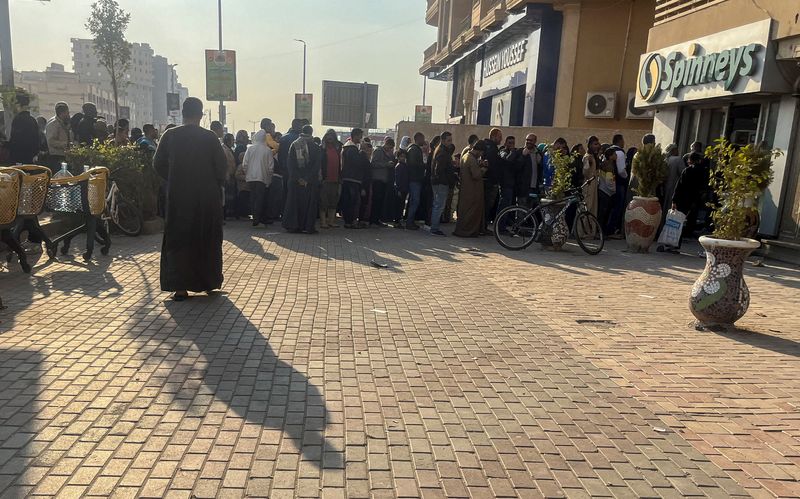
CAIRO (Reuters) – A forum set up by Egypt’s president began discussing on Monday a possible shift in the country’s subsidy programme towards paying cash directly instead of offering food products at reduced prices, a system many economists say could be more efficient.
Any move towards cash payments would be significant because for decades Egypt has provided subsidies on bread and other staples to much of the population, and previous attempts to reform this politically sensitive programme have led to protests.
Egypt spends around 370 billion Egyptian pounds ($7.6 billion) on direct subsidies, according to the 2024/25 budget, of which 36% is allocated to food. Over 60 million people can buy staples like pasta, vegetable oil and sugar at discounted prices, while at least 10 million more benefit from heavily subsidized bread.
For months, President Abdel Fattah al-Sisi and senior ministers have criticised the subsidy system, arguing that it fails to benefit the most vulnerable while placing a heavy burden on state finances.
The International Monetary Fund, which is lending Egypt $8 billion under its latest support programme, said in August that a reduction in untargeted subsidies would provide more room for social protection and human capital development.
Sisi announced the National Dialogue in 2022 as a way to generate policy debate and recommendations within limits set by the state.
Many of the forum’s recommendations remain unimplemented though former minister and national dialogue board member Gouda Abdel Khalik said its discussion of subsidies signalled that the government intended to move forward with the reform.
“The government is determined to cut subsidies, and they’re using the national dialogue to portray it as expert-backed,” Abdel Khalik said.
On Sunday, the National Dialogue issued a statement laying out the potential benefits of a shift to cash subsidies.

About 60% of Egyptians are estimated to live below or close to the poverty line. Many have depended on subsidies as prices have soared and the currency has weakened.
Mohamed Fouad, an economist at the American University in Cairo, said cash subsidies could better target the neediest but only with clear criteria on how they would be targeted and linked to inflation.
This post is originally published on INVESTING.



